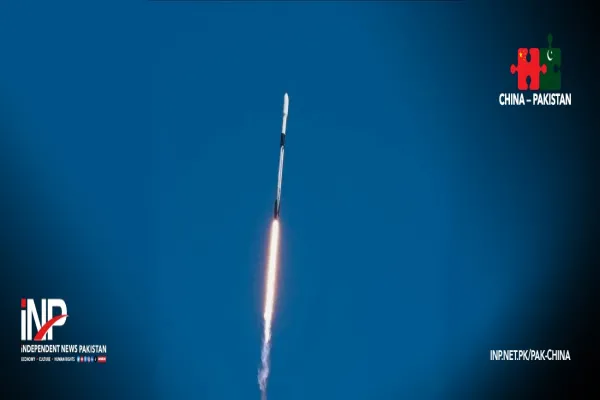i NEWS PAK-CHINA
Sino-Pak enhances it cooperation for mitigating Pakistan’s fertilizer crisis, China Economic Net (CEN) reported on Sunday. As per the report, in recent years, the sharp rise in fertilizer prices kept farmers in Pakistan unsettling. Data shows that the cultivated land area in Pakistan has increased by 2 million hectares in the past two years, and 2021 is the year with the highest urea sales in Pakistan’s history. It is predicted that if the supply of urea cannot be guaranteed, the annual wheat yield in Pakistan may decrease by 5% to 10%. To relieve the fertilizer shortage, at the beginning of 2022, the Pakistani government approved the import of 50,000 tonnes of urea from China on an immediate basis, at a price lower than the current international level.
Besides import and export trade, the two countries can explore more cooperation in fertilizer. Some Chinese agricultural experts shared their experience with Pakistani farmers during interview with CEN. “The type and dosage of fertilizers used should be set according to local conditions and crop characteristics. Farmers should not only know the amount of fertilizer to be used, but also understand why they should use it that way,” Li Guang, Secretary-General of China Phosphate and Compound Fertilizer Industry Association said. The saying “no pains, no gains” is not for applying fertilizer, and the overuse of fertilizer will bring about resource waste and environment damage. Reasonable use of fertilizer can reduce cost and decrease waste for farmers, achieving ‘twice the result with half the effort’. Besides, improving planting method can save the amount of fertilizer to be used on unit area too. Intercropping is a good choice.
“This is strawberry-onion intercropping. In the late stage of strawberry planting, onion seedlings are sowed. Onion can secrete some bactericidal substances during its growth, which has the best effect on improving the soil conditions for strawberry. In addition, potassium fertilizer will also be used for strawberry to improve the sweetness of strawberry fruit. Ordinary onions are spicy, but the intercropped onions are sweetened by absorbing the fertilizer for strawberry, which taste great and unique,” Zhu Ning from Agricultural Technology Extension Station of Changping District, Beijing, China told CEN.
Some new fertilizers like organic fertilizer and water-soluble fertilizer are also worth attention. Compared with traditional fertilizers, new fertilizers have the characteristics of high efficiency, compound and slow-release. “In the early stage of planting, some organic fertilizers, such as chicken manure and sheep manure, will be added to make the soil looser and rich in more organic matter. In the late stage of planting, more water-soluble fertilizers will be used for topdressing. In addition, in recent years, growers and consumers have more demands on the taste and quality of strawberries.
Therefore, some fertilizers such as seaweed fertilizer, fish protein fertilizer and Huangpu acid fertilizer are being used to improve the fruit quality,” Zhu Ning added. “Based on the current experience, the final demand is new fertilizers, not just the superposition of basic fertilizers. A complete set of solutions should be provided in accordance with the local environment, plant types, etc.
Through fertilizer products, it will be much simpler for farmers to improve the nutrition for the plants during the whole process,” Li Guang said. Chinese fertilizer companies are looking forward to explore more cooperation possibilities with Pakistan. “We also do research on soil conditioners. Next, we are planning to introduce fertilizer and soil conditioners to Pakistan.
We will also bring our field management cultivation mode including how to better raise seedlings, to Pakistan to carry out more cooperation,” Qi Liying, Executive Deputy General Manager of Tianjin Tianlongzaitian Agricultural Science and Technology Co., Ltd. said.
Credit: Independent News Pakistan-INP









